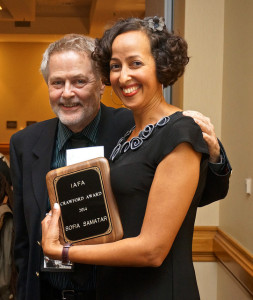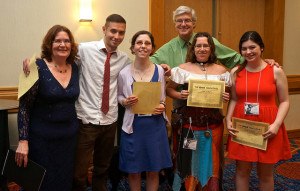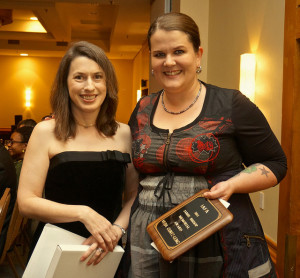DORIS LESSING 2014: AN INTERNATIONAL CONFERENCE –
CALL FOR PAPERS
Date: Friday/Saturday 12/13th September 2014
Location: University of Plymouth, Devon, UK
Website: www.dorislessing2014.com
Please send 200 word abstracts for a 20 minute paper, along with a brief biography, to dorislessingconference@gmail.com by Monday 30 June 2014
Confirmed speakers: Nick Bentley, Clare Hanson, Laura Marcus, Susan Watkins; more to follow shortly …
In one of the many obituaries from fellow writers that followed Doris Lessing’s death in 2013, Joyce Carol Oates observed that ‘it might be said of Doris Lessing, as Walt Whitman boasted of himself: I am vast, I contain multitudes.’ Doris Lessing 2014: An International Conference, takes the end of Lessing’s long life as the starting point for a renewed engagement with her life and work. This conference seeks to stimulate new scholarship on Lessing’s work by embracing her vast multitudes: her contexts ranging from Iran and Zimbabwe to London; her genres from documentary to science fiction to life writing; and her engagements with political ideologies from Marxism and imperialism to feminism and environmentalism. Reflecting Lessing’s own lifelong interest in the positions and politics of reading, it aims to bring together a diverse range of scholars, critics and readers to reflect on the legacy and future of Lessing’s work. It will also try to extend our sense of how Lessing connects to a host of other writers, a list that might include (but is certainly not limited to): Margaret Atwood, John Osborne, John Berger, J. M. Coetzee, Nadine Gordimer, Kurt Vonnegut, Virginia Woolf, Idries Shah, Olaf Stapledon, Leo Tolstoy, Marcel Proust, D. H. Lawrence, Salman Rushdie, Margaret Drabble . . . Finally, the conference aims to not only generate new research on Lessing’s work, but to use Lessing’s lifelong commitment to a common and global literary culture to discuss her relevance to that most pressing topic of contemporary debate: the public role and value of the humanities.
Submission are invited on topics including, but certainly not limited to:
§ Lessing’s relationships to other writers
§ Lessing, Empire and post/coloniality
§ Lessing, life writing and auto/biography
§ Lessing, Ecocriticism and the Anthropocene
§ Lessing’s craft and style
§ Lessing and feminism
§ Lessing, Communism and politics
§ Lessing and the legacies of modernism
§ Lessing, spirituality and religion
§ Lessing and science fiction
§ Lessing’s readers
§ Lessing and world literature
§ Lessing’s genres
§ Lessing and cultural criticism
§ Lessing, theatre and opera
§ Lessing’s emotions and affects


